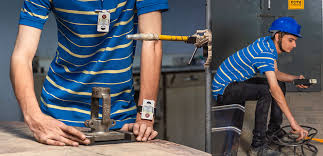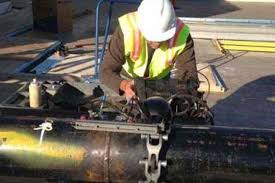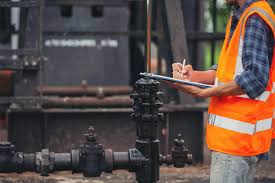Welder Qualification Inspection in Egypt: Ensuring Quality and Safety
Welder qualification inspection in Egypt is a crucial aspect of ensuring the quality and safety of welding projects. As the demand for construction and infrastructure development continues to rise in Egypt, the need for skilled and certified welders has become increasingly important. In order to meet industry standards and ensure the safety of structures and equipment, welder qualification inspections are carried out to assess the competency ndt inspection companies and expertise of welders in Egypt. This process plays a vital role in maintaining the integrity of welding projects and safeguarding the wellbeing of workers and the public.
Welder qualification inspection in Egypt plays a critical role in ensuring quality and safety within the welding industry. This process involves assessing and certifying welders based on their skills, professional ndt services knowledge, and experience in various welding techniques and materials. Qualified inspectors use internationally recognized standards and guidelines to evaluate welders' performance and competence. This inspection is vital for maintaining high-quality welds and preventing weld-related failures, which can have severe consequences in various industries such as construction, manufacturing, and oil and gas. Overall, welder qualification inspection serves as a crucial quality control measure to uphold safety and efficiency in welding operations.
The Importance of Welder Qualification Inspection in Egypt

Welder qualification inspection is crucial in Egypt as it ensures that welders are capable of producing welded joints of acceptable quality in accordance with specified standards. This is important to guarantee the safety and integrity of welded structures, as well as to maintain compliance with regulations and codes. Welder qualification inspection also helps to prevent costly rework and potential failures in the field, thus minimizing risks and ensuring reliable performance of welded components in various industries such as construction, oil and gas, and manufacturing. Additionally, this process contributes oil and gas ndt services to the overall improvement of welder skills and competence, enhancing the overall quality of welding work in Egypt.
Standards and Regulations for Welder Qualification in Egypt
professional ndt services

Welders in Egypt are required to have their qualifications certified by the Egyptian Welding Society (EWS) in accordance with specific standards and regulations. The EWS follows the guidelines set out by international organizations such as the American Welding Society (AWS) and the International Organization for Standardization (ISO) to ensure that welders meet the necessary requirements for safety and quality. These standards cover areas such as the welder's skill level, knowledge of welding procedures, and ability to produce high-quality welds. Additionally, there are specific regulations for different types of welding processes, materials, and industries in Egypt, which welders must adhere to. Overall, the standards and regulations for welder qualification in Egypt are designed to ensure that welders are capable of meeting the demands of the industry and producing work that is safe and reliable.
Challenges and Advances in Welder Qualification Inspection in Egypt

Challenges in welder qualification inspection in Egypt include ensuring compliance with international standards and regulations, as well as addressing the shortage of skilled inspectors in the country. Advances in this field involve the adoption of advanced non-destructive testing techniques and the implementation of digital inspection and reporting systems. Additionally, the use of robotic welding technology is also on the rise, leading to more precise and efficient welder qualification inspections. Overall, the industry in Egypt is making progress in addressing these challenges through innovation and the adoption of new technologies.
Ensuring Safety and Quality through Welder Qualification Inspection in Egypt
In Egypt, ensuring safety and quality through welder qualification inspection is a critical aspect of maintaining high construction and manufacturing standards. Welders are required to undergo testing and certification to ensure that they have the necessary skills and expertise to produce welds that meet industry standards. These qualifications are crucial for ensuring that welded structures and components are safe and reliable. The inspection process for welder qualification typically includes visual examinations, non-destructive testing, and destructive testing of weld samples. This comprehensive evaluation helps to verify the capability of welders to produce sound welds that meet the required codes and standards. In Egypt, the General Organization for Standards and Quality (EOS) sets the standards and regulations for welder qualification inspections. Welders are required to undergo training and testing to obtain certification, and their work is regularly inspected to ensure ongoing compliance with standards. By enforcing welder qualification inspections, Egypt aims to enhance safety and quality in the construction and manufacturing industries. This ensures that welded structures and components are built to withstand the required loads and environmental conditions, ultimately contributing to public safety and product reliability.
The Role of Certification in Welder Qualification Inspection in Egypt<
ndt inspection companies/h2>
The role of certification in welder qualification inspection in Egypt is vital for ensuring that welders meet the necessary standards and qualifications for their work. Certification serves as a reliable method for verifying a welder's skills, knowledge, and experience in welding processes and techniques. In Egypt, welders are required to obtain certification from approved organizations or agencies that offer accredited training, testing, and certification programs. These programs typically include hands-on welding tests, written examinations, and practical assessments to demonstrate the welder's proficiency. Certification in welder qualification inspection also plays a significant role in upholding quality, safety, and compliance with industry standards and regulations. It provides assurance to employers, contractors, and clients that the welder has the necessary skills and expertise to perform welding tasks effectively and safely. Additionally, certified welders often have better job prospects and may command higher wages due to their recognized qualifications. This not only benefits the individual welder but also contributes to the overall professionalism and reputation of the welding industry in Egypt. Overall, certification in welder qualification inspection is a key factor in ensuring the competence and reliability of welders in Egypt, ultimately contributing to the quality and integrity of welding projects across various industries.
Common Welder Qualification Deficiencies in Egypt
Common welder qualification deficiencies in Egypt may include inadequate training and certification, lack of proper equipment and safety measures, and failure to adhere to industry standards and codes. Additionally, there may be a shortage of qualified inspectors and a lack of oversight and accountability in the welding industry. These deficiencies can lead to substandard work, safety hazards, and decreased quality in welded products and structures. It is important for the welding industry in Egypt to address these deficiencies in order to ensure the safety and quality of welding projects.
Future Trends in Welder Qualification Inspection in Egypt
In Egypt, future trends in welder qualification inspection are likely to involve advancements in non-destructive testing technologies, such as phased array ultrasonic testing and digital radiography. These technologies offer more accurate and efficient methods for evaluating weld quality, leading to increased productivity and improved safety in the welding industry. Additionally, there may be a shift towards implementing standards for welder qualification that are in line with international best practices, in order to ensure that Egyptian welders are meeting global industry standards. This may involve training and certification programs that are recognized both locally and internationally, in order to improve the quality and skill level of welders in Egypt.